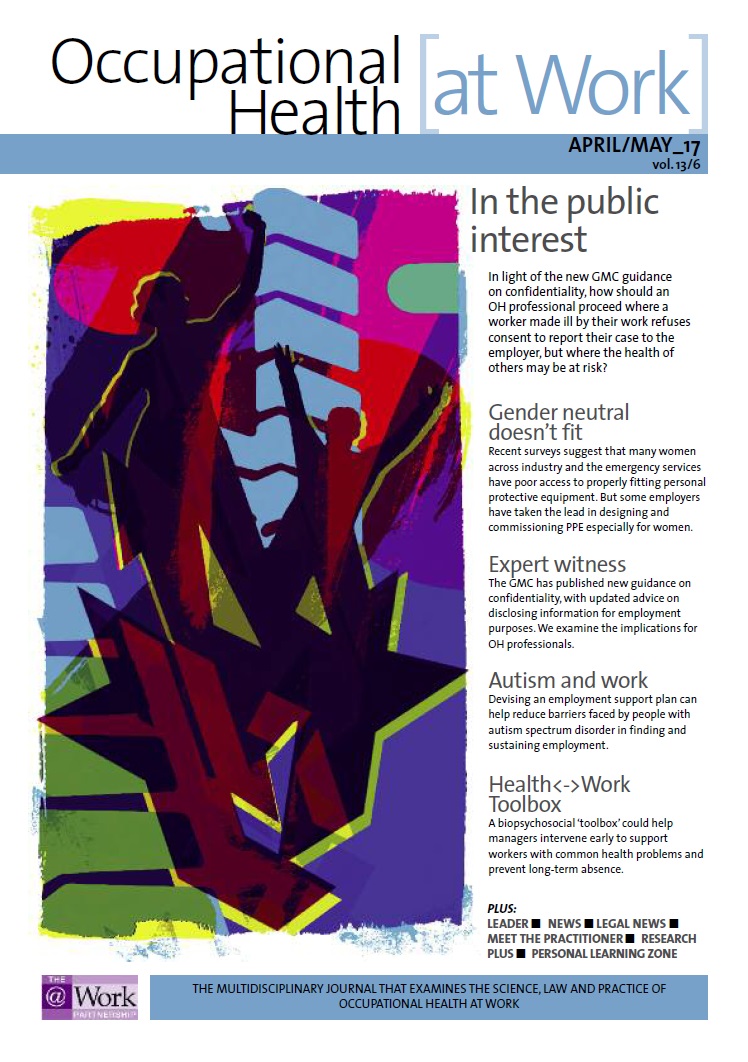April/May 2017 (vol. 13/6)
ContentsFeaturesNewsLegal
NewsResearch DigestResearch PlusCPD
Research Plus
Promoting return to work
There is strong evidence that multi-domain interventions – ie those combining components aimed at service coordination (to improve access to, and delivery of workplace return-to-work (RTW) services), work modification and improving worker health – can be effective in reducing lost working time associated with musculoskeletal injuries and pain-related conditions, according to this systematic review of 36 medium- and high-quality studies. It also found strong evidence that work-focused cognitive behavioural therapy (CBT) can reduce lost working time and associated costs in workers absent with mental health problems, but also strong evidence that CBT on its own, ie without workplace modifications or service-coordination components, did not promote RTW. There was moderate-strength evidence that health-focused graded-activity programmes and workplace adjustments reduced lost working time. There was moderate-strength evidence that multi-domain interventions for musculoskeletal and pain-related conditions, and work-focused CBT for mental health conditions, improved work functioning after RTW. There was insufficient or limited evidence with regards to the effectiveness in promoting RTW of ‘work hardening’ ( job-focused rehabilitation using actual work tasks), physician training, case management, RTW plans, and worker or supervisor education and training – and not enough evidence on these to guide current policies or practices.
Journal of Occupational Rehabilitation 2017; online first: doi 10.1007/s10926-016-9690-x.
Occupational Health at Work April/May 2017 (vol. 13/6) pp40-41



